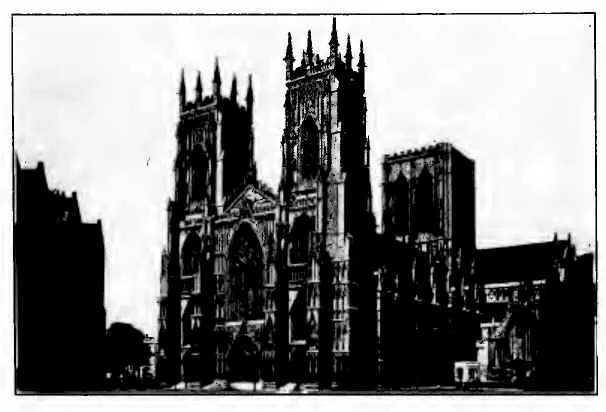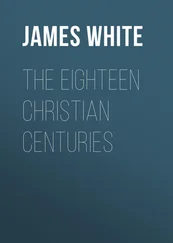James Walsh - The Thirteenth, Greatest of Centuries
Здесь есть возможность читать онлайн «James Walsh - The Thirteenth, Greatest of Centuries» — ознакомительный отрывок электронной книги совершенно бесплатно, а после прочтения отрывка купить полную версию. В некоторых случаях можно слушать аудио, скачать через торрент в формате fb2 и присутствует краткое содержание. Жанр: foreign_prose, История, foreign_edu, foreign_antique, на английском языке. Описание произведения, (предисловие) а так же отзывы посетителей доступны на портале библиотеки ЛибКат.
- Название:The Thirteenth, Greatest of Centuries
- Автор:
- Жанр:
- Год:неизвестен
- ISBN:нет данных
- Рейтинг книги:3 / 5. Голосов: 1
-
Избранное:Добавить в избранное
- Отзывы:
-
Ваша оценка:
- 60
- 1
- 2
- 3
- 4
- 5
The Thirteenth, Greatest of Centuries: краткое содержание, описание и аннотация
Предлагаем к чтению аннотацию, описание, краткое содержание или предисловие (зависит от того, что написал сам автор книги «The Thirteenth, Greatest of Centuries»). Если вы не нашли необходимую информацию о книге — напишите в комментариях, мы постараемся отыскать её.
The Thirteenth, Greatest of Centuries — читать онлайн ознакомительный отрывок
Ниже представлен текст книги, разбитый по страницам. Система сохранения места последней прочитанной страницы, позволяет с удобством читать онлайн бесплатно книгу «The Thirteenth, Greatest of Centuries», без необходимости каждый раз заново искать на чём Вы остановились. Поставьте закладку, и сможете в любой момент перейти на страницу, на которой закончили чтение.
Интервал:
Закладка:

CATHEDRAL (YORK)

CATHEDRAL (LINCOLN)
Bishops who came to Rome were sure to hear inculcated the advisability of a taste for letters in clergymen, hear it said often enough that such a taste would surely increase the usefulness of all churchmen. Schools had been encouraged before the issuance of the decree. This only came as a confirmatory document calculated to perpetuate the policy that had already been so prominently in vogue in the church for over fifteen years of the Pope's reign. It was meant, too, to make clear to hesitant and tardy bishops, who might have thought that the papal interest in education was merely personal, that the policy of the church was concerned in it and recalled them to a sense of duty in the matter, since the ordinary enthusiasm for letters, even with the added encouragement of the Pope, did not suffice to make them realize the necessity for educational establishments.
The institution of the schools of grammar in connection with cathedrals was well adapted to bring about a definite increase in the opportunities for book learning for those who desired it. In connection with the cathedrals there was always a band of canons whose duty it was to take part in the singing of the daily office. Their ceremonial and ritual duties did not, however, occupy them more than a few hours each day. During the rest of the time they were free to devote themselves to any subject in which they might be interested and had ample time for teaching. The requirement that there should be at least a school of grammar in connection with every cathedral afforded definite opportunity to such of these ecclesiastics as had intellectual tastes to devote themselves to the spread of knowledge and of culture, and this reacted, as can be readily understood, to make the whole band of canons more interested in the things of the mind, and to make the cathedral even more the intellectual center of the district than might otherwise have been the case.
For the metropolitan churches a more far-reaching regulation was made by this same council of Lateran under the inspiration of the Pope himself. These important Archiepiscopal cathedrals were required to maintain professors of three chairs. One of these was to teach grammar, a second philosophy, and a third canon law. Under these designations there was practically included much of what is now studied not only in preparatory schools but also at the beginning of University courses. The regulation was evidently intended to lead eventually to the formation of many more universities than were then in existence, because already it had become clear that the traveling of students to long distances and their gathering in such large numbers in towns away from home influences, led to many abuses that might be obviated if they could stay in their native cities, or at least did not have to leave their native provinces. This was a far-seeing regulation that, like so many other decrees of the century, manifests the very practical policy of the Pope in matters of education as well as charity. As a matter of fact this decree did lead to the gradual development of about twenty universities during the Thirteenth Century, and to the establishment of a number of other schools so important in scope and attendance that their evolution into universities during the Fourteenth Century became comparatively easy. This formal church law, moreover, imposed upon ecclesiastical authorities the necessity for providing for even higher education in their dioceses and made them realize that it was entirely in sympathy with the church's spirit and in accord with the wish of the Father of Christendom, that they should make as ample provision for education as they did for charity, though this last was supposed to be their special task as pastors of the Christian flock.
All this important work for the foundation of preparatory schools in every diocese and of the preliminary organization of teaching institutions that might easily develop into universities, as they actually did in a score of cases in metropolitan cities, was accomplished under the first Pope of the Thirteenth Century, Innocent III. His successors kept up this good work. Pope Honorius III., his immediate successor, went so far in this matter as to depose a bishop who had not read Donatus, the popular grammarian of the time. The bishop evidently was considered unfit, as far as his mental training went, to occupy the important post of head of a diocese. Pope Gregory IX., the nephew of Innocent III., was one of the most important patrons of the study of law in this period (see Legal Origins in Other Countries), and encouraged the collection of the decrees of former Popes so as to make them available for purposes of study as well as for court use. He is famous for having protected the University of Paris during some of the serious trouble with the municipal authorities, when the large increase of the number of students in attendance at the University had unfortunately brought about strained relations between town and gown.
Pope Innocent IV. by several decrees encouraged the development of the University of Paris, increased its rights and conferred new privileges. He also did much to develop the University of Toulouse, and especially to raise its standard and make it equal to that of Paris as far as possible. The patronage of Toulouse on the part of the Pope is all the more striking because the study of civil law was here a special feature and the ecclesiastical authorities were often said to have looked askance at the rising prominence of civil law, since it threatened to diminish the importance of canon law; and the cultivation of it, only too frequently, seemed to give rise to friction between civil and ecclesiastical authorities. While the pontifical court of Innocent IV. was maintained at Lyons it seemed, according to the Literary History of France, 3 3 Histoire Litteratire de la France, Vol. XVI, Introductory Discourse.
more like an academy of theology and of canon law than the court of a great monarch whose power was acknowledged throughout the world, or a great ecclesiastic who might be expected to be occupied with details of Church government.
Succeeding Popes of the century were not less prominent in their patronage of education. Pope Alexander IV. supported the cause of the Mendicant Friars against the University of Paris, but this was evidently with the best of intentions. The mendicants came to claim the privilege of having houses in association with the university in which they might have lectures for the members of their orders, and asked for due allowance in the matter of degrees for courses thus taken. The faculty of the University did not want to grant this privilege, though it was acknowledged that some of the best professors in the University were members of the Mendicant orders, and we need only mention such names as Albertus Magnus and St. Thomas Aquinas from the Dominicans, and St. Bonaventure, Roger Bacon and Duns Scotus from the Franciscans, to show the truth of this assertion. To give such a privilege seemed a derogation of the faculty rights and the University refused. Then the Holy See interfered to insist that the University must give degrees for work done, rather than merely for regulation attendance. The best possible proof that Pope Alexander cannot be considered as wishing to injure or even diminish the prestige of the University in any way, is to be found in the fact that he afterwards sent two of his nephews to Paris to attend at the University.
All these Popes, so far mentioned, were not Frenchmen and therefore could have no national feeling in the matter of the University of Paris or of the French universities in general. It is not surprising to find that Pope Urban IV., who was a Frenchman and an alumnus of the University of Paris, elevated many French scholars, and especially his fellow alumni of Paris, to Church dignitaries of various kinds. After Urban IV., Nicholas IV. who succeeded him, though once more an Italian, founded chairs in the University of Montpelier, and also a professorship in a school that it was hoped would develop into a university at Gray in Franche Comte. In a word, looked at from every point of view, it must be admitted that the Church and ecclesiastical authorities were quite as much interested in education as in charity during this century, and it is to them that must be traced the foundation of the preparatory schools, as well as the universities, and the origin and development of the great educational movement that stamps this century as the greatest in human history.
Читать дальшеИнтервал:
Закладка:
Похожие книги на «The Thirteenth, Greatest of Centuries»
Представляем Вашему вниманию похожие книги на «The Thirteenth, Greatest of Centuries» списком для выбора. Мы отобрали схожую по названию и смыслу литературу в надежде предоставить читателям больше вариантов отыскать новые, интересные, ещё непрочитанные произведения.
Обсуждение, отзывы о книге «The Thirteenth, Greatest of Centuries» и просто собственные мнения читателей. Оставьте ваши комментарии, напишите, что Вы думаете о произведении, его смысле или главных героях. Укажите что конкретно понравилось, а что нет, и почему Вы так считаете.












